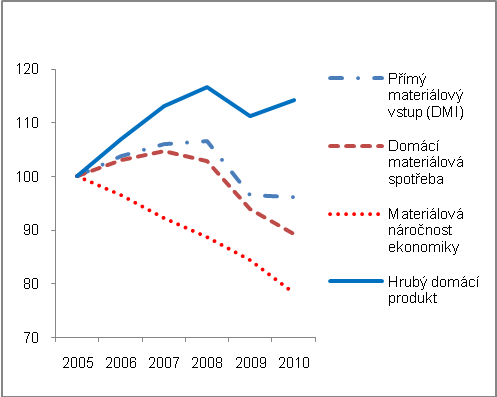NAME ELVIS EX VI VIEW INPUT THE EDITOR
100 M RIQUELVIS SANTIAGO 87 1086 NADDERUD 13610 JOHN39 A KERESETTELVISZONTKERESETTELBESZÁMÍTÁSSAL SZEMBENI ÍRÁSBELI ELLENKÉRELEM NYOMTATVÁNY KERESETTELVISZONTKERESETTELBESZÁMÍTÁSSAL SZEMBENI
6 ANATOMY OF THE FEMALE PELVIS AND FETAL SKULL
A „KAMASZKODÓ” CSOPORTRÓL A NORMÁLIS KAMASZ SOKSZOR ELVISELHETETLEN SZEMTELEN
A LITTLE LESS CONVERSATION – ELVIS PRESLEY A7 D
ANMELDELSE AF “MADS TOGHØJ SYNGER ELVIS” FRA FREDERIKSHAVNS BIBLIOTEK
NAME
elvis, ex, vi, view, input - The editor
SYNOPSIS
elvis [flags] [+cmd] [files...]
DESCRIPTION
Elvis is a text editor which emulates vi/ex.
On systems which pass the program name as an argument,
such as Unix and Minix, you may also install elvis under
the names "ex", "vi", "view", and "input". These extra
names would normally be links to elvis; see the "ln" shell
command.
When elvis is invoked as "vi", it behaves exactly as
though it was invoked as "elvis". However, if you invoke
elvis as "view", then the readonly option is set as though
you had given it the "-R" flag. If you invoke elvis as
"ex", then elvis will start up in the colon command mode
instead of the visual command mode, as though you had
given it the "-e" flag. If you invoke elvis as "input" or
"edit", then elvis will start up in input mode, as though
the "-i" flag was given.
OPTIONS
-r To the real vi, this flag means that a previous
edit should be recovered. Elvis, though, has a
separate program, called elvrec(1), for recovering
files. When you invoke elvis with -r, elvis will
tell you to run elvrec.
-R This sets the "readonly" option, so you won't acci-
dentally overwrite a file.
-t tag This causes elvis to start editing at the given
tag.
-m [file]
Elvis will search through file for something that
looks like an error message from a compiler. It
will then begin editing the source file that caused
the error, with the cursor sitting on the line
where the error was detected. If you don't explic-
itly name a file, then "errlist" is assumed.
-e Elvis will start up in colon command mode.
-v Elvis will start up in visual command mode.
-i Elvis will start up in input mode.
-w winsize
Sets the "window" option's value to winsize.
1
ELVIS(1) ELVIS(1)
+command or -c command
If you use the +command parameter, then after the
first file is loaded command is executed as an EX
command. A typical example would be "elvis +237
foo", which would cause elvis to start editing foo
and then move directly to line 237. The "-c com-
mand" variant was added for UNIX SysV compatibil-
ity.
FILES
/tmp/elv*
During editing, elvis stores text in a temporary
file. For UNIX, this file will usually be stored
in the /tmp directory, and the first three charac-
ters will be "elv". For other systems, the tempo-
rary files may be stored someplace else; see the
version-specific section of the documentation.
tags This is the database used by the :tags command and
the -t option. It is usually created by the
ctags(1) program.
.exrc or elvis.rc
On UNIX-like systems, a file called ".exrc" in your
home directory is executed as a series of ex com-
mands. A file by the same name may be executed in
the current directory, too. On non-UNIX systems,
".exrc" is usually an invalid file name; there, the
initialization file is called "elvis.rc" instead.
ENVIRONMENT
TERM This is the name of your terminal's entry in the
termcap or terminfo database. The list of legal
values varies from one system to another.
TERMCAP
Optional. If your system uses termcap, and the
TERMCAP variable is unset, then
will read your terminal's definition from
/etc/termcap. If TERMCAP is set to the full path-
name of a file (starting with a '/') then will
look in the named file instead of /etc/termcap. If
TERMCAP is set to a value which doesn't start with
a '/', then its value is assumed to be the full
termcap entry for your terminal.
TERMINFO
Optional. If your system uses terminfo, and the
TERMINFO variable is unset, then
will read your terminal's definition from the
database in the /usr/lib/terminfo database. If
TERMINFO is set, then its value is used as the
database name to use instead of /usr/lib/terminfo.
2
ELVIS(1) ELVIS(1)
LINES, COLUMNS
Optional. These variables, if set, will override
the screen size values given in the term-
cap/terminfo for your terminal. On windowing sys-
tems such as X, has other ways of determining the
screen size, so you should probably leave these
variables unset.
EXINIT Optional. This variable can hold EX commands which
will be executed before any .exrc files.
SHELL Optional. The SHELL variable sets the default
value for the "shell" option, which determines
which shell program is used to perform wildcard
expansion in file names, and also which is used to
execute filters or external programs. The default
value on UNIX systems is "/bin/sh".
Note: Under MS-DOS, this variable is called COMSPEC
instead of SHELL.
HOME This variable should be set to the name of your
home directory.
looks for its initialization file there; if HOME
is unset then the initialization file will not be
executed.
TAGPATH
Optional. This variable is used by the "ref" pro-
gram, which is invoked by the shift-K, control-],
and :tag commands. See "ref" for more information.
TMP, TEMP
These optional environment variables are only used
in non-UNIX versions of . They allow you to supply
a directory name to be used for storing temporary
files.
SEE ALSO
ctags(1), ref(1), virec(1)
Elvis - A Clone of Vi/Ex, the complete elvis documenta-
tion.
BUGS
There is no LISP support. Certain other features are
missing, too.
Auto-indent mode is not quite compatible with the real vi.
Among other things, 0^D and ^^D don't do what you might
expect.
Long lines are displayed differently. The real vi wraps
long lines onto multiple rows of the screen, but elvis
3
ELVIS(1) ELVIS(1)
scrolls sideways.
AUTHOR
Steve Kirkendall
[email protected]
Many other people have worked to port elvis to various
operating systems. To see who deserves credit, run the
:version command from within elvis, or look in the system-
specific section of the complete documentation.
4
ANSØGNING OM TILLADELSE TIL ETABLERING AF HELT ELLER DELVIST
AUTO%20DE%20CIERRE%20%20Elvis%20Otoniel%20Tenazoa
“A FOOL SUCH AS I”—ELVIS PRESLEY (NOW AND THEN
Tags: editor synopsis, text editor, elvis, editor, input
- F10V01MIPDGRCP04V01 DIRECCIÓN GENERAL DEL REGISTRO CIVIL COORDINACIÓN DE SERVICIOS
- GRUPA 8 ZAŁĄCZNIK NR 2 DO ZAPYTANIA OFERTOWEGO NR
- ISEF N° 1 DR ENRIQUE ROMERO BREST CONVOCA A
- CONSEJO DE DERECHOS HUMANOS 910 DERECHOS HUMANOS Y JUSTICIA
- XIX EDIÇÃO REGATA INTERNACIONAL CANÁRIAS MADEIRA 6 DE
- R ESIDENCES FEES & ASSOCIATED CHARGES – DIRECT DEBIT
- 12 SREČANJE ŠPORTNIH DRUŠTEV OBČINE SLOVENJ GRADEC 14 15
- BREZNICA 3 4274 ŽIROVNICA TEL (04) 58 09 100
- TORTURAS APLICADAS POR LA INQUISICIÓN LA CARA OCULTA
- PROTECTION AND PERMANENCY MEMORANDUM 2016 TO SERVICE REGION ADMINISTRATORS
- GOVERNORS COMMITTEE ON EMPLOYMENT OF PEOPLE WITH DISABILITIES MEETING
- ET ARBEIDSLIV FOR ALLE FORHANDLINGSRESULTATET ER KLART OG SOM
- ¼” GRAPH PAPER COPYRIGHT © DO2LEARN WWWDO2LEARNCOM
- NZQA UNIT STANDARD 16761 VERSION 8 PAGE 3 OF
- REPLACING LECTURE WITH WEBBASED COURSE MATERIALS RICHARD SCHEINES1 GAEA
- PIB (NAZIV POSLODAVCA) (SEDIŠTE) NA OSNOVU
- OLOMOUCKÝ KRAJSKÝ FOTBALOVÝ SVAZ NA STŘELNICI 39779
- 5 BRMG0063KRI09 PROTOKÓŁ NR 32809 Z POSIEDZENIA KOMISJI REWIZYJNEJ
- REPÚBLICA DE COLOMBIA TRIBUNAL SUPERIOR DISTRITO JUDICIAL SECRETARIA CIUDAD
- CONTRATO DE LICENCIA DE USO DE INFORMACIÓN DE REDES
- NEW HIRE CHECKLIST USE THE FOLLOWING CHECKLIST(S) TO ENSURE
- COMPETENCIAS (APRENDIZAJE) DE WIKIPEDIA LA ENCICLOPEDIA LIBREHTTPESWIKIPEDIAORGWIKICOMPETENCIA(APRENDIZAJE) CONTENIDO
- MONTEVIDEO …………………………… SRA GERENTE DE GESTIÓN DE CAPITAL HUMANO
- REV CUBANA PLANT MED 20049(1) POLICLÍNICO COMUNITARIO DOCENTE TOMÁS
- +STATE OF OKLAHOMA 1ST SESSION OF THE 50TH LEGISLATURE
- HWYV 002 R 0818 STATE OF HAWAII DEPARTMENT OF
- STRATEGIA ROZWOJU POWIATU RACIBORSKIEGO CZĘŚĆ I DIAGNOZA STANU ISTNIEJĄCEGO
- SIAM 19291930 INCOME CLASS NUMBER OF HOUSEHOLDS PERCENTAGE OF
- CROWN ENTITIES ACT STATEMENT OF INTENT GUIDANCE MINIMUM
- INTERNATIONAL ISLAMIC UNIVERSITY ISLAMABAD A PPLICATION FORM FOR GIRLS
 T HE CONSTITUTION OF THE STUDENTS’ UNION UCL CALEDONIAN
T HE CONSTITUTION OF THE STUDENTS’ UNION UCL CALEDONIAN Instituto Departartamental de Salud de Nariño Subdireccion de
Instituto Departartamental de Salud de Nariño Subdireccion deDEPARTAMENTO DE MORFOLOGÍA Y BIOLOGÍA CELULAR FACULTAD DE MEDICINA
OŚWIADCZENIE I PEŁNOMOCNICTWO JA NIŻEJ PODPISANY …………………… OŚWIADCZAM IŻ
CICLO DE CONFERENCIAS “EL MUNDO ALREDEDOR DE JAVIER” CONFERENCIAS
DEFINICIÓN DE BLOQUE ECONÓMICO AGRUPAMIENTO DE VARIOS PAÍSES
A CHECKLIST OF THINGS TO DO TO CHANGE YOUR
 ÚSTAV ZEMĚDĚLSKÉ POTRAVINÁŘSKÉ A ENVIRONMENTÁLNÍ TECHNIKY MENDELOVA UNIVERZITA V
ÚSTAV ZEMĚDĚLSKÉ POTRAVINÁŘSKÉ A ENVIRONMENTÁLNÍ TECHNIKY MENDELOVA UNIVERZITA VCOLOUR CODING THE SOUNDS OF SPEECH COLOUR CODING LINKS
COMPARECENCIA CASO MADOFFZABALGARBI DESDE EL COMPROMISO PERSONAL QUE ASUMÍ
 THIS DIAGRAM SHOWS THE ENERGY THAT MUST BE ADDED
THIS DIAGRAM SHOWS THE ENERGY THAT MUST BE ADDED 11 SESSIONNO 2 PAPER NO 5 COUNTRY ITALY DEVELOPMENT
11 SESSIONNO 2 PAPER NO 5 COUNTRY ITALY DEVELOPMENTSPECIALIŲJŲ ARCHITEKTŪROS REIKALAVIMŲ IR SPECIALIŲJŲ SAUGOMOS TERITORIJOS TVARKYMO IR
CUANDO UN DOCENTE TITULAR CESA EN SU CARGO POR
MIĘDZYNARODOWE PRAWO JAZDY MIEJSCE ZAŁATWIENIA SPRAWY STAROSTWO POWIATOWE W
JERNBANEVERKET SIGNAL KAP 5P BANEDIVISJONEN REGLER FOR KONTROLL UTGITT
 INFORMACIÓN Y NORMAS DE MATRÍCULA 1 QUÉ OFERTAMOS A
INFORMACIÓN Y NORMAS DE MATRÍCULA 1 QUÉ OFERTAMOS A OFERTA MIEJSCOWOŚĆ DATA …………… NAZWA WYKONAWCY ADRES WYKONAWCY TELEFON
OFERTA MIEJSCOWOŚĆ DATA …………… NAZWA WYKONAWCY ADRES WYKONAWCY TELEFON 7 VYBRANÉ ASPEKTY VZTAHU EKONOMIKY A ŽIVOTNÍHO PROSTŘEDÍ EKONOMICKÝ
7 VYBRANÉ ASPEKTY VZTAHU EKONOMIKY A ŽIVOTNÍHO PROSTŘEDÍ EKONOMICKÝDRŽAVNI ZAVOD ZA INTELEKTUALNO VLASNIŠTVO REPUBLIKE HRVATSKE ULICA GRADA